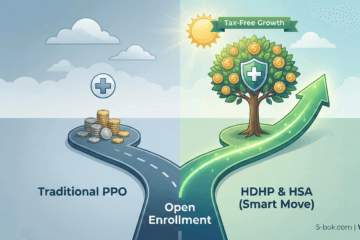Is it true that the average person cannot bear to earnestly think about their own death for more than two minutes?
Donno. But what does seem to be true is the vast majority of us are not financially prepared for death.
We can discuss the psychological and the spiritual perspectives in a different post. We can talk about life insurance and other investments in another post. This post is about determining what happens to all your stuff after you die.
Some claim that they don’t care what happens to their “estate” after death. Most do care but just never got around to preparing for it. But if you don’t prepare, then the government takes over and determines what happens to your stuff, and takes a cut. A will can determine to whom and how much of your stuff is distributed, but even if you have a will, the probate process still needs to occur (which takes time, takes a cut of your estate, and usually requires lawyers).
There are many books that outline Estate Planning issues and strategies.
This post is a quick summary of “key words” you can search online for information and videos, so you can speak somewhat intelligently when you consult with the appropriate experienced professionals (accountant, lawyer, insurance agent, financial planner, etc.).
“Estate”
For most people “estate” sounds like something only rich people have. But the legal definition of an “estate” refers to all the property and assets owned by a person at the time of their death, as well as any debts they owed. This includes everything from real estate and bank accounts to personal belongings and investments.
“Wills” and “Intestacy”
The estate is managed and distributed according to the wishes outlined in the person’s will.
If they died without a will (intestate = without speaking), the estate is managed and distributed according to the state intestacy laws. If the decedent had assets in different states and/or different countries, then the complexity, time, and costs go up and up.
- Certain assets typically pass outside of intestacy laws, including:
- Assets held in a living trust;
- Life insurance proceeds with designated beneficiaries;
- Payable-on-death (POD) accounts;
- Jointly owned property with right of survivorship.
“Probate”
Probate is a formal legal process that identifies and assesses the assets, debts and taxes, and finally distributes the remaining property to the beneficiaries or heirs.
While there are some general similarities, each state has its own specific laws and procedures that govern how estates are handled. These differences can include things like:
- Small estate procedures: Many states have simplified probate processes for estates that fall below a certain value. The threshold for what qualifies as a “small estate” varies significantly from state to state.
- Types of probate: Some states offer different types of probate administration, such as independent administration or supervised administration, which can affect the level of court oversight required.
- Intestate succession: If a person dies without a will, the state’s intestacy laws determine how their property will be distributed. These laws can vary widely, particularly in how they treat spouses, children, and other relatives.
- Creditor claims: States have different rules regarding how and when creditors can make claims against an estate.
- Timeframes: The length of the probate process can vary depending on the state and the complexity of the estate.
Ancillary Probate
One significant difference between states arises when a person owns property in a state other than their primary residence. In such cases, a separate probate proceeding, known as “ancillary probate,” may be necessary in the state where the property is located. This can add complexity and cost to the probate process.
Importance of Knowing the State’s Laws
Because probate laws vary, it’s essential to understand the specific rules in the state where the deceased person resided and where they owned property. This is particularly important for executors or administrators who are responsible for managing the estate. Consulting with a probate attorney in the relevant state(s) is often advisable to ensure compliance with all applicable laws and procedures.
Without a will, the state determines (through intestacy laws) what happens to the Estate through probate.
But even WITH a will, the estate still goes through probate – a time consuming, legal process (can take months to years), where a lawyer may be needed (and paid), where an administrator/executor is needed (and paid), and a percentage is paid to the state (taxes), and which may end up being open to the public (no privacy).
“Living Will”
Living Wills and Living Trusts are both important estate planning tools, but they serve very different purposes:
Living Wills, Advance Directives, and Medical Power of Attorney Forms are available online and from your hospital and/or health insurance company.
- Focus: Directs medical care preferences if you become incapacitated and unable to communicate your wishes.
- Purpose: Ensures your healthcare providers and loved ones know your desires regarding life-sustaining treatments, such as:
- Resuscitation (CPR)
- Mechanical ventilation
- Artificial nutrition and hydration
- When it takes effect: Only when you are alive but unable to make medical decisions for yourself.
“Living Trust”
A Living Trust manages your assets during your lifetime and distributes them after your death. Many complete a DYI Living Will, but setting up and funding a Living Trust properly usually requires some professional advice (CPA, lawyer, etc.). Keep in mind the cost of that professional advice now is a fraction of what it will cost later.
Purpose:
- Avoid probate (the court process of validating a will and distributing assets)
- Maintain privacy (trusts are not part of the public record like wills)
- Provide for someone to manage your assets if you become incapacitated
- Potentially reduce estate taxes (depending on the type of trust)
When it takes effect: Immediately upon creation. You typically act as the trustee while you’re alive and then a successor trustee takes over if you become incapacitated or after you die.
Real estate, vehicles, and personal property are commonly transferred into a Living Trust. Beloved pets are added to trusts to make sure pets are taken care of.
“POD” “TOD”
POD (Payable on Death) and TOD (Transfer on Death) clauses are essentially the same thing with a slight difference:
- POD: Typically used for bank accounts (checking, savings, CDs)
- TOD: Typically used for investment accounts (brokerage accounts, stocks, bonds, mutual funds)
How they work:
Both POD and TOD designations are instructions you give to your bank or investment firm. They specify that when you die, the assets in that account should be automatically transferred to a named beneficiary (or beneficiaries) without going through probate.
Key features and benefits:
- Avoid probate: This can save time, money, and hassle for your beneficiaries.
- Simple and easy: Adding a POD or TOD designation is usually a straightforward process.
- Direct transfer: The assets go directly to your beneficiaries without any court involvement.
- Control during your lifetime: You retain complete control over the account while you’re alive. You can deposit, withdraw, and even change beneficiaries as needed.
Things to consider:
- Not a substitute for a will: While POD/TOD accounts are helpful, they don’t cover all your assets or estate planning needs. You should still have a will to address other property and wishes.
- Potential issues with estate taxes: Depending on the size of your estate, POD/TOD accounts might be included when calculating estate taxes.
- Coordination with overall estate plan: It’s important to ensure your POD/TOD designations align with your overall estate plan to avoid conflicts or unintended consequences.
POD and TOD clauses are valuable tools for simplifying the transfer of specific assets to your beneficiaries after your death. They can help avoid probate and ensure your loved ones receive those assets quickly and easily. However, they should be considered as part of a comprehensive estate plan that includes a will and other relevant documents.
“Estate Plan”
Controlling what happens to your estate, when, and how – saving heirs time, taxes, legal fees, admin fees, and privacy – irrespective of size, Google these key words, consult a CPA, lawyer, insurance agent, to set up your Estate Plan: PODs and TODs, Wills (pour-over, holographic, medical directive living, etc.), and a Living Trust.
Don’t put off researching life insurance. Many rely on company policies and term life insurance – both of which terminate and go away. Most don’t know that life insurance is often unavailable to people who have survived a cardiovascular event (heart attack, stroke, etc) or who have survived cancer. Pushing off life insurance until “middle age” is unwise. Further, not understanding that on average Americans die in their 70s means “middle age” is your 30s (not your 50s).
A Lock Box or End of Life Organizer might be a handy place to record where all your assets, accounts, documents and files are located (so your loved ones don’t have to scramble to piece together your Estate).



1 Comment
phlwinph · 2025-09-21 at 9:06 pm
I enjoyed reading this article. Thanks for sharing your insights.